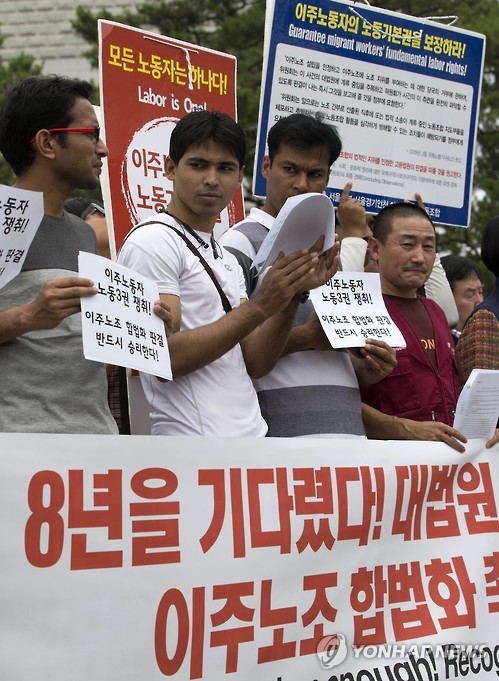The Korean government has mapped out a mid-term plan to loosen immigration controls on highly skilled foreign workers amid the aging population, while vowing to restrict the inflow of unskilled migrant workers.
In a package of comprehensive measures announced by the Ministry of Health and Welfare to cope with the falling birthrate, the government said it would accept more qualified overseas workers and make it easier for them to study, work and live in the nation.
 |
| (Yonhap) |
For short-term goals, the government aims to attract more foreign students pursuing higher education in Korea on the government scholarship program. It will simplify the procedures for such students to be granted visas to study, get a job and settle down here more easily.
Stressing the need to tackle the shortage of labor force, especially in the research and development sectors lacking qualified researchers, the government plans to increase the number of foreign students on the scholarship program from 21,535 in 2014 to 32,646 by 2020.
But the government pledged to toughen rules on unskilled workers, selectively allowing them to reside here and inducing them to work here only for a short term.
While more than 1.8 million foreign workers live in Korea, most of them are low-skilled workers, with the population continuing to grow, the government pointed out.
According to government data released last year, some 825,000 migrant workers are legally working in the country, 71 percent of whom are doing unskilled jobs typically in labor-intensive sectors such as construction, manufacturing and agriculture. Some 208,778 are thought to be residing in the country illegally.
Approximately 45 percent of the foreign workers are employed at factories, with 31 percent working at construction sites and 12 percent hired in the service industry under the Employment Permit System. Only 12 percent are white-collar workers.
Under the EPS, authorities have allowed unskilled migrants from 15 nations in Central and Southeast Asia to work in Korea for a maximum four years and 11 months.
The government plan largely includes measures to avoid granting residency to those “unlikely to integrate into society” and unable to live independently. It will allow only those earning more than a certain amount to live here and demand domestic companies make more efforts to hire local workers before turning to the foreign workforce.
The “foreigner management system,” which will be devised by the Justice Ministry by 2017, will set priorities in accepting foreign workers and the number of migrant workers the authorities will accept based on the nation’s birthrate, economic conditions and economically active population.
It will take effect in Korea from 2018-2022.
By Ock Hyun-ju (laeticia.ock@heraldcorp.com)

